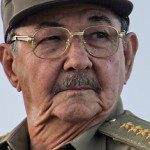Raúl Castro’s government has locked up scores of people for exercising their fundamental freedoms and allowed scores more political prisoners arrested during Fidel Castro’s rule to languish in detention, Human Rights Watch (HRW) says in a report released today. Rather than dismantle Cuba’s repressive machinery, Raúl Castro has kept it firmly in place and fully active, the report says.

The 123-page report, “New Castro, Same Cuba,” shows how the Raúl Castro government has relied in particular on the Criminal Code offense of “dangerousness,” which allows authorities to imprison individuals before they have committed any crime, on the suspicion that they are likely to commit an offense in the future. This “dangerousness” provision is overtly political, defining as “dangerous” any behavior that contradicts Cuba’s socialist norms.
“In his three years in power, Raúl Castro has been just as brutal as his brother,” said José Miguel Vivanco, Americas director at Human Rights Watch. “Cubans who dare to criticize the government live in perpetual fear, knowing they could wind up in prison for merely expressing their views.”
Based on a fact-finding mission to Cuba and more than 60 in-depth interviews, Human Rights Watch documented more than 40 cases in which the government has imprisoned individuals under the “dangerousness” provision for exercising their basic rights.
Ramón Velásquez Toranzo, who set out on a peaceful march across Cuba to call for respect for human rights and freedom for all political prisoners, was arrested and sentenced to three years in prison for “dangerousness” in January 2007.
Raymundo Perdigón Brito, a journalist who wrote articles documenting abuses by the government and published them on foreign websites, was sentenced to four years in prison for “dangerousness” in December 2006. He has endured repeated beatings by guards and solitary confinement during his incarceration.
The Raul Castro government also uses a range of other draconian laws to silence free speech, quash labor rights, and criminalize all forms of dissent. Human rights defenders, journalists, and other civil society members tried under these laws are subjected to systematic due process violations, including abusive interrogations, the denial of legal counsel, and sham trials.
A spokesman for the Cuban Interests Section in Washington said in a statement that his country `does not recognize the legality or moral authority of this organization` that compiled the report.


